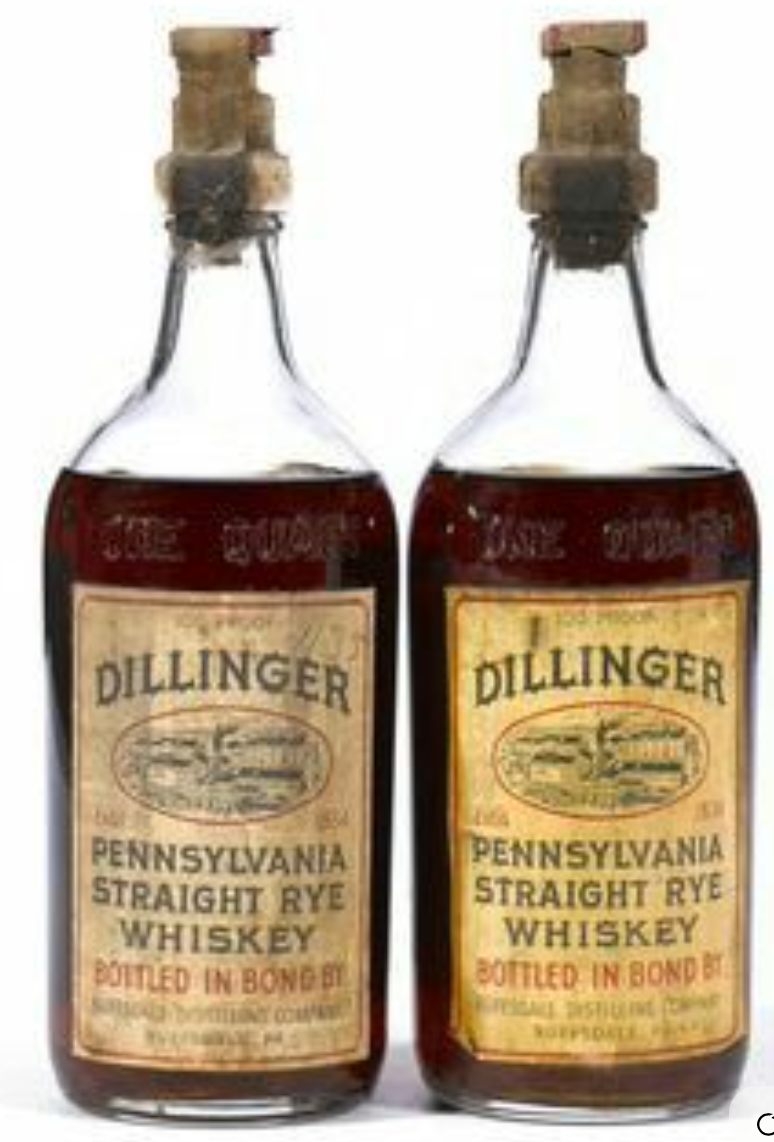Samuel Dillinger
Dillenger Pennsylvania Rye
Samuel Dillinger was born in East Huntingdon Township in Westmoreland County, Pennsylvania, on October 28, 1810. As a teenager, Samuel, who was of German descent, was employed by Martin Stauffer, near Jacob’s Creek, and it is believed that this is where he learned the business of distilling. Martin Stauffer was married to Elizabeth Overholt, who was the half-sister of Abraham Overholt.
Samuel married Sarah Loucks in 1831, whom he met while working for Martin Stauffer. Sarah was also related to the Overholt distilling family. After they married, Samuel and Sarah soon purchased their homeplace, nicknamed “Home Farm,” near Alverton, Pennsylvania. Together, they had 10 children. At “Home Farm,” Samuel established his farming business, as well as a rye whiskey still.
Samuel purchased a grist mill in West Bethany in 1850 and later added a distillery there as well. The grist mill and distillery were destroyed in a fire in 1881, and Samuel, along with his two eldest sons, rebuilt the distillery in Ruff’s Dale, Pennsylvania, the next year. His distillery in Ruff’s Dale was later named S. Dillinger and Sons. After the purchase of the second distillery, Samuel Dillinger became the second-largest whiskey maker in Pennsylvania at that time.
Over the course of his life, Samuel would serve in various occupations. He was a farmer and a buyer and seller of cattle and horses. He was also a commercial transporter, transporting merchandise between Pittsburgh and Baltimore. He was a builder, constructing schools and churches. Although he had very little formal education, he supported free schools and was a member of the board of school directors. In 1871, he was involved in the establishment of the Southwest Pennsylvania Railway and served on the directorate.
Samuel was well-respected and considered zealous in politics. He was a member of the Whig party during President Buchanan’s administration, who, disillusioned, later became a Democrat. Samuel opposed slavery, but also opposed confiscation and the idea of Civil War. It is reported that Samuel believed that slavery would end once people were educated that it was wrong. While he was an advocate for what he believed, he never aspired to serve in political office.
Over the years, Samuel purchased additional farmland near “Home Farm”, eventually owning over 600 acres of land in the area, which was found to be underlain with Connellsville coking coal. Ever resourceful, Samuel and his sons built coke ovens and were one of the pioneer coke operators in Pennsylvania. (Coke is a fuel made by heating coal without access to oxygen. It burns hotter than coal and is used in the iron and steel industry as a reducing agent and as fuel.)
Unfortunately, Samuel became ill and died at the age of 79 on August 25, 1889. His wife, Sarah, died nine years later. They are buried together in the Mennonite cemetery in Alverton, Pennsylvania.
After his death, his sons successfully operated his distillery until Prohibition. By 1906, it was reported that Dillinger Distilleries was producing fifty barrels a day and had 55,000 barrels in storage. Dillinger also operated or supplied several bottlers, rectifying companies, and liquor dealers. However, during Prohibition, Samuel’s sons sold the distillery to the Rosenbloom family (who operated a liquor dealership in Allegheny, Pennsylvania), who promptly renamed the distillery Ruffsdale Distilling Company but kept the Dillinger name on the whiskey. Around 1940, the distillery was sold again, and the name was changed back to the Dillinger Distilling Company.
Reference: History of Westmoreland County, Pennsylvania, Volume 2. (1906)
Contributed by: Gwen Hoover, Carlisle, Pennsylvania
with support from Bill & Vicki Gallagher, Mid-Atlantic Rye Whiskey Section Editors, Marriottsville, Maryland





